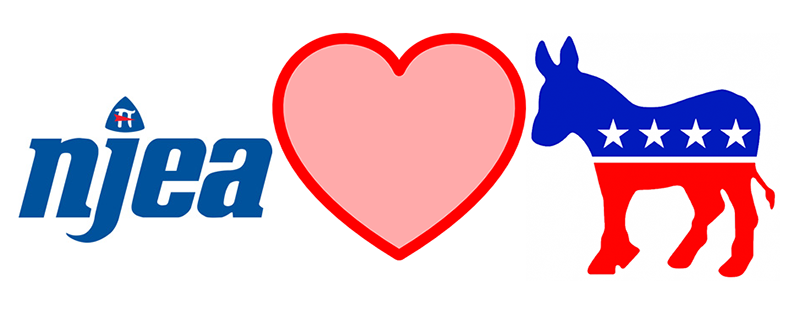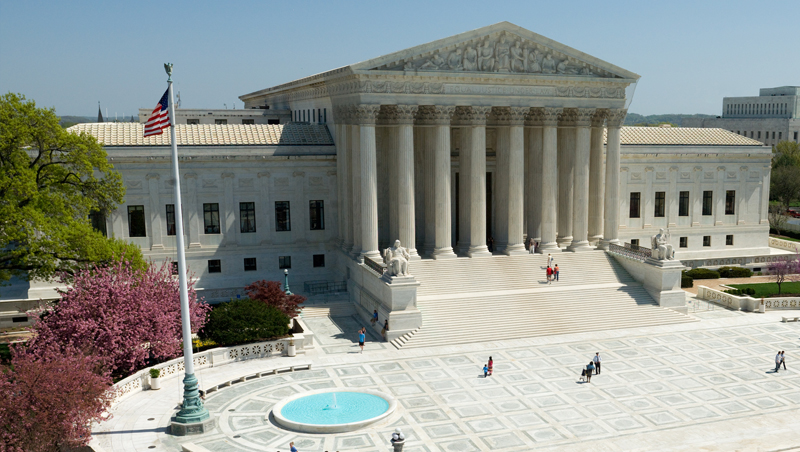
TRENTON, N.J. — Wednesday’s monster Supreme Court decision in Janus v. AFSCME will be a major topic of discuss in the coming weeks and possibly beyond. Millions of workers in 22 U.S. states are impacted, and tens of millions of non-union taxpayers may’ve just caught a huge break.
Click here to read the full 5-4 opinion authored by a Trenton, New Jersey native (Justice Samuel Alito) in which the Court held…
“…States and public-sector unions may no longer extract agency fees from nonconsenting employees. The First Amendment is violated when money is taken from nonconsenting employees for a public-sector union; employees must choose to support the union before anything is taken from them. Accordingly, neither an agency fee nor any other form of payment to a public-sector union may be deducted from an employee, nor may any other attempt be made to collect such a payment, unless the employee affirmatively consents to pay.”
“Compelling individuals to mouth support for views they find objectionable violates that cardinal constitutional command, and in most contexts, any such effort would be universally condemned,” wrote Justice Alito.
What does it mean for New Jersey? Specifically?
For starters, the state’s largest political spender might have just been dealt a fatal financial blow.
 Some quick background for the newly-engaged: Mark Janus, a public employee from Illinois, thought it was crazy that union members would need to pay dues even after leaving the union. Any reasonable person would see it as a First Amendment violation; you’re forcing someone to subsidize the union’s political a activities. Previously, way back in 1977, the Supreme Court had said government employees could be compelled to fork over “fair share fees” to unions because all workers benefited (snicker) from contract negotiations.
Some quick background for the newly-engaged: Mark Janus, a public employee from Illinois, thought it was crazy that union members would need to pay dues even after leaving the union. Any reasonable person would see it as a First Amendment violation; you’re forcing someone to subsidize the union’s political a activities. Previously, way back in 1977, the Supreme Court had said government employees could be compelled to fork over “fair share fees” to unions because all workers benefited (snicker) from contract negotiations.
Today, the High Court’s majority decided there were “very strong reasons” not to follow Abood (the ’77 case), explaining “[f]undamental free speech rights are at stake” and that Abood “was poorly reasoned.”
When Wisconsin eliminated collective bargaining, union membership in that state dropped 40%.
SCOTUS didn’t eliminate public sector collective bargaining per se; it did decide that Mark Janus’s like-minded public employees in New Jersey, and all other states, don’t have to fork over those “fair share” fees.
Now that compelling mandatory dues is definitively a First Amendment violation, the cash machine of public sector unions including the New Jersey Education Association (NJEA) is in serious peril. Regular readers and N.J. political observers know how the NJEA has collected untold millions in union dues which its has subsequently put into use — in election cycles and lobbying efforts — to pursue its own narrow interests, usually at the taxpayers’ expense. Many experts cite the NJEA as a leading in force in destroying the state pension and benefits system as well as helping preserve an unreasonable school funding formula. Both items remain the single biggest drivers of New Jersey’s worst-in-America tax climate.
Irony abounds. The notorious public sector union will now face tough financial questions of its own after paying a decisive hand in ruining New Jersey’s finances.
The NJEA recently raised its leadership’s pay by 42% during a period of time in which teacher pay increased by just 1% all while increasing union dues from $7,314 for the 2012 school year to $8,975 currently. That’s a 23% increase passed onto the membership! And it’s not hard to see why the union leadership “needs” the money. Five years ago, the NJEA posted $12,021,875 more assets than liabilities; three years later, in 2016, the NJEA had $82,703,784 more liabilities than assets. This financial mess is largely attributable to not only inflated salaries but a badly underfunded Health & Welfare Benefits Fund (it had over $151 million more accrued obligations than assets as of two years ago).
Will the NJEA cut salaries? Raise dues again?
Can it sustain itself financially? Especially if there is a hypothetical drop in dues-paying members post-Janus?
 NJEA allies in Trenton were working to blunt the impact of Janus even before the decision came down. The brand new “Workplace Democracy Enhancement Act” (as explained by our guest contributor Maureen Sullivan):
NJEA allies in Trenton were working to blunt the impact of Janus even before the decision came down. The brand new “Workplace Democracy Enhancement Act” (as explained by our guest contributor Maureen Sullivan):
- “Severely restricts the time period when workers are allowed to opt out of a union. They used to be able to drop their membership anytime during the year, though they still had to pay dues. Now, if the court rules as expected, they will be able to drop their membership and pay no dues, but only during a limited period each year – just the first 10 days after their hiring-anniversary date.”
- “Mandates that in addition to providing work details, government personnel departments have 10 days to hand over to the union the home address, personal email address and the home and cell phone numbers of each new employee. Beginning Jan. 1, they must provide that personal information on all employees every 120 days.”
- “Makes it difficult for taxpayer and other outside groups to encourage workers to drop their membership by now prohibiting the disclosure of employee information through public-records requests.”
- “Guarantees that union officials can spend at least 30 minutes of paid time with each new hire. There’s no limit on how long the meetings can last, so anyone thinking about not joining may be in for a long session.”
If only they were this proactive and creative in saving us money! Instead of trying to protect special interests. Right?
We’ll see if those restrictions survive a post-Janus court challenge.
Either way, profound political changes — ones which could dramatically and yes, positively transform our lives here in New Jersey — might be inevitable following today’s ruling. The NJEA and its allies are on the wrong side of history AND our Constitution. Buckle up.
–


